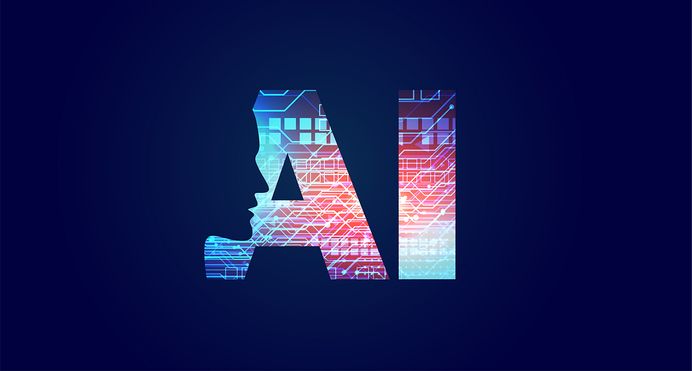
Fintech is the Future of Banking
Good Banking Experiences
When was the last time we had a thoroughly good banking experience? Now, I don’t mean stoked over the moon, take that roller coaster over and over again kind of experience, but an experience that wasn’t so suited and tailored to specificity.
We’re talking about an experience that’s almost hard to replicate, but not impossible. An experience that’s comforting, creative, enjoyable and most importantly; memorable. Surely, banking doesn’t resonate with these terms and they haven’t been able to create experiences that’s sure to feature of your weekly top of the pops.
However, there’s good news for you if your head and heart are heavily invested in banking. As of 2019, we’re going through what many experts see as the biggest transformation within the banking sector.
The fin-tech revolution is all set to transform banking as we know it.
Like any revolution, there’s always acceptance and resistance. It’s the oldest story with any revolution. Whether it’s been industrial, electrical, technology and as we see now i.e. the 4th industrial revolution. This one too will produce winners and losers. It’s inevitable.
Bankers of the Future
“The Bankers of the future will be very different from the bankers of today,” says Heri Arslanian. Heri tells us how it’s more than just being friendly and knowing what makes your customers more money. Banks will have to rise to the occasion of personalized and innovative services if they’re looking for higher customer retention and increased profits.
Bankers of tomorrow will have very different personalities, backgrounds, and skill sets. Let’s try and break this down before we choose to agree to disagree and all that jazz.
What exactly is fin-tech?
Fin-tech, short for – as you guessed it, financial technology is the smart and highly innovative use of technology, that’s designed and delivered to help better leverage financial services. This Stellar technology has transformed and changed the landscape of the banking world, as we know it.
Whether is artificial intelligence, big data, block chain, crowdfunding, digital payments or robot advisers. But you may ask yourself, why now though? For this answer, we caught a recent TEDx featuring Henri, PwC FinTech & Crypto Leader for Asia, the Chairman of the Fin-tech Association of Hong Kong.
Banking Vs Tech.
The inevitable Race
Henri says, “historically as technology evolved, the banking industry was reasonably good at integrating those technologies in order to better serve customers. However, all that changed when we hit our financial crisis back in 2008.”
We now went back to the drawing board and got up to speed with the 08’ financial crisis. During the financial crisis of 08′, banks had their hands full dealing with the all those new rules, regulatory requirements and a plethora of fines that were imposed on them.
An Economic Times article from 2017 stated that banks have paid as much as $321 billion in fines since 2008 because of gross regulatory failings. These included money laundering and even market manipulation!
With a lot of fines and compliance on their plates, concepts such as innovation, and more importantly; customer delight through innovative technologies became a very distant priority.
However, it’s around the same time that, technology, devices, ideas and concepts that were tipped to change the way we operate within a community also took birth.
Applications, services & innovation.
How applications have changed the game.
A lot of experts, Henri included love to go back to the iPhone example.
Released in mid-2007, the iPhone would go onto set the tonality for all phone makers and markets. Airbnb, founded in 2008. Uber, founded in March of 09, just about post the whole financial crisis hitting us with all its ferocity.
WhatsApp, founded in January of 2009 and even WeChat that followed close behind WhatsApp – the list goes on and on, and here we are today, 10 years later with each and every one of these applications and services there has been one attribute and one quality to their names that have had them surpass their competition, and no we’re not talking financial backing, but something a lot more important and intangible. Customer delight.
What we’ve come to understand is this; the birth of various services and applications lead to a gap being created; between what banks had on offer and what we, as a community/customer came to experience, especially in terms of user experience, delight and ultimately the convenience perspective. With the birth of these applications and services, rudimentary and legacy banking tact just wouldn’t cut it anymore.
Let’s take a minute to understand this because we feel we need to give it it’s due diligence. We’re talking about the banking industry here, an industry as old as time itself.
The banking industry has been knows as the industry that has over the years set the rules and benchmark for the other industries to prosper or fail. What the banking industry did not foresee is two things; the first is the obvious elephant in the room; the financial crisis back in 08’.
The second i.e. the gap created by banks was so big that even non-traditional banking players woke up, and decided to jump in and capture an opportunity of a lifetime. Most if not all of these non-traditional banks were and are technology firms.
Add Banking to Your Checkout.
Everyday Apps & Banking in 2019.
Facebook
Let’s try and further understand this. Did you know that as of 2016, Facebook has currently around 50 different regulatory licenses in the United States alone that would allow Facebook users to transfer money via the messenger app!
Amazon
Amazon back in ’16 experimented with offering student loans of their platform. Even Ant Financial, Alibaba’s financial arm launched a money market fund that has become the third biggest money market fund in the World. Swatting away traditional brick and mortar banks that have been doing this for centuries now.
WeChat
Tencent’s messaging app WeChat is probably leading this race, as of 2016 it was seen as the most common tool to transfer money. Last Chinese New Year, they processed more than $8 billion red envelope transactions.!
We Chat is possibly a perfect example of what the future of banking looks like and how to capture a market that thrives on customer delight and engagement.
WeChat also allows you to buy insurance products or invest in various funds directly with the use of your smartphone, even lets you book your next doctor appointment, order a taxi, give some money away to charity and even find yourself a date for the night without ever leaving the premises of the application. It’s personalization 101 down to the tee and absolutely on point.
We’re going to leave you with with the above bit information for a day as our next blog, ‘The Financial Platforms of the Future’ looks at how we’ve collectively as a community moved away from traditional, legacy and yesterdays banks.
About interface
Currently engaged with several enterprises in the Americas, Europe-Middle East-Africa (EMEA), and Asia-Pacific region, interface’s Intelligent Virtual Assistants or IVAs make every digital channel of an enterprise intelligent. With rich IVAs, an enterprise can leapfrog customer & employee experience to voice-first natural language interface. For more information, check out interface.ai.
Read our blog on: Roadmap to Integrating an Omni Channel Chatbot
Discover the Latest Insights on Interactive Intelligence for Banking Newsletter
Join the newsletter to receive the latest updates in your inbox.



